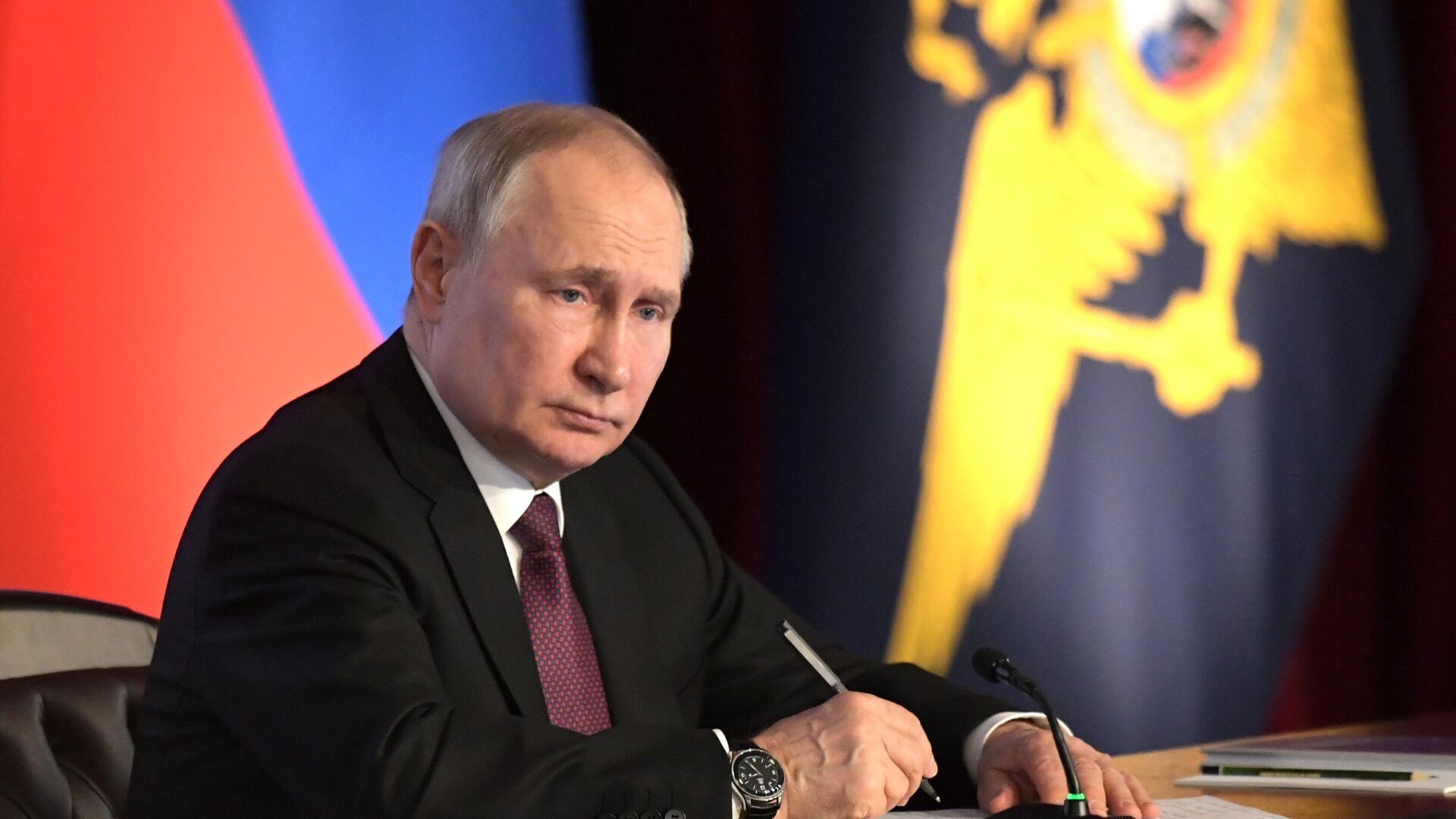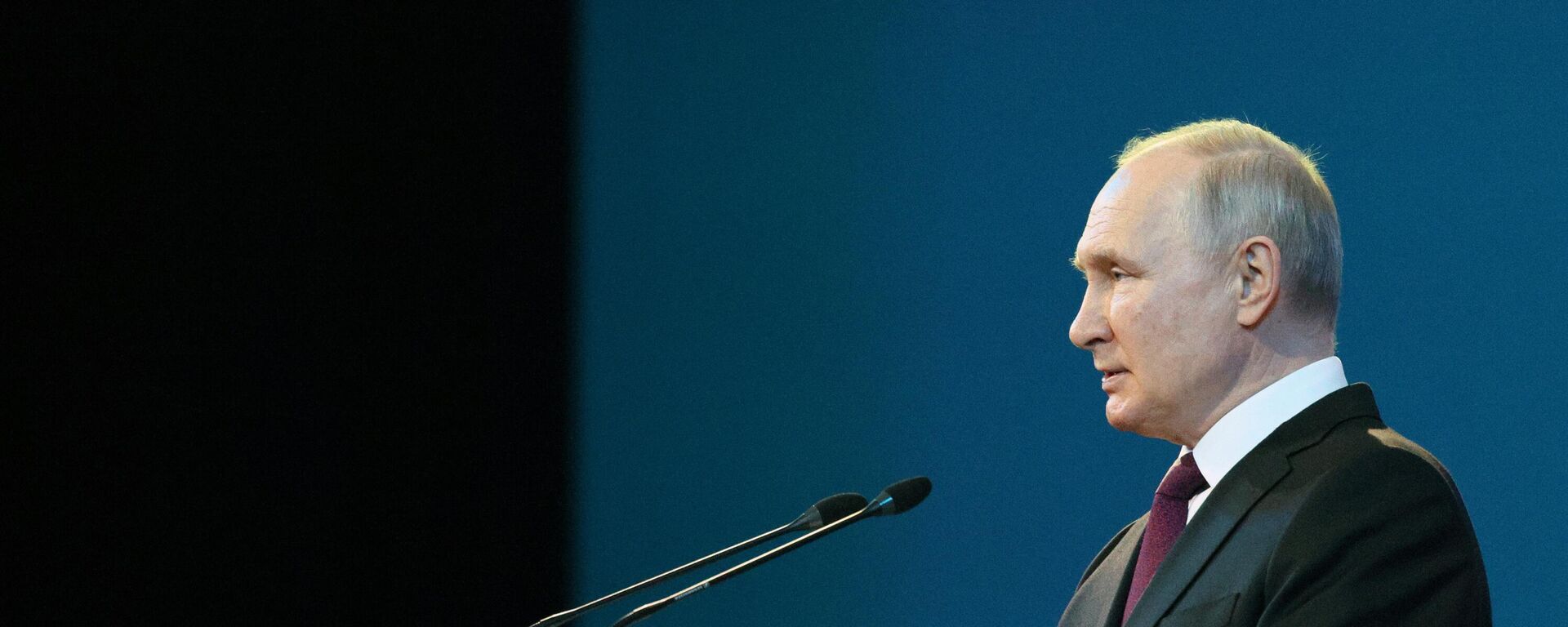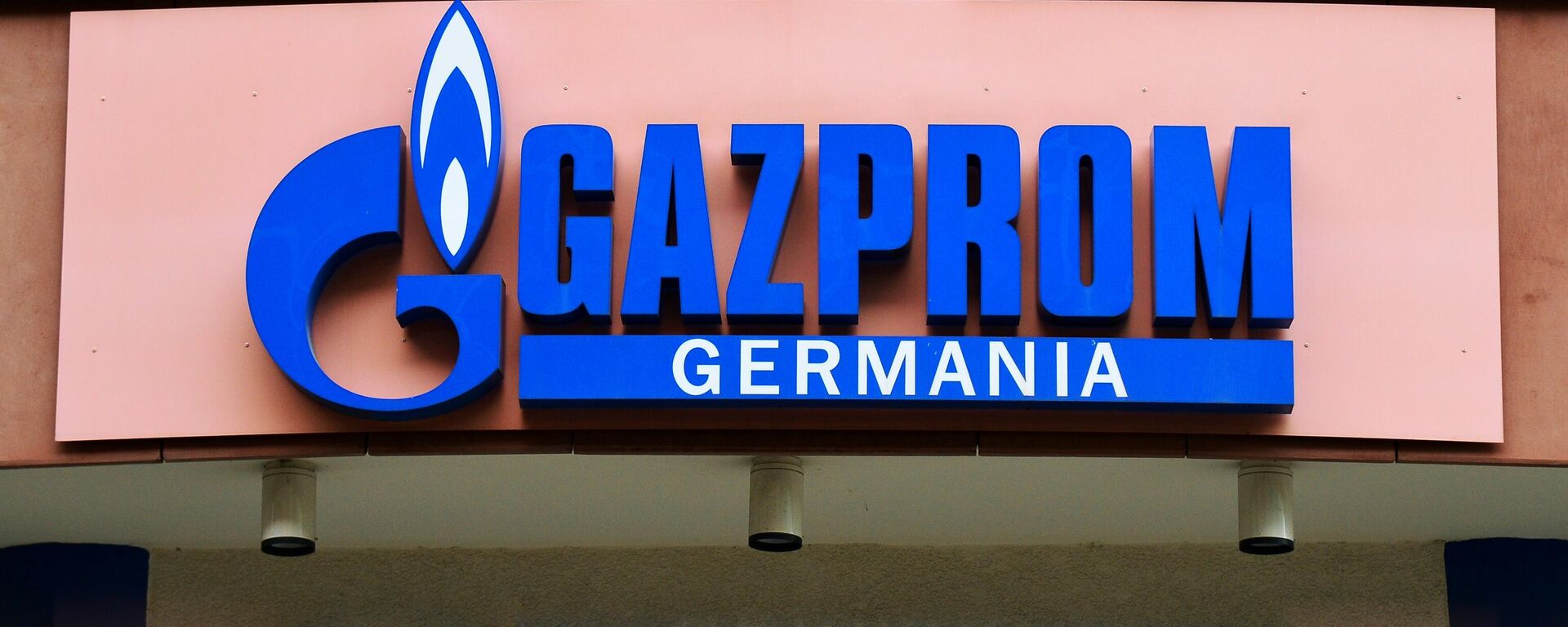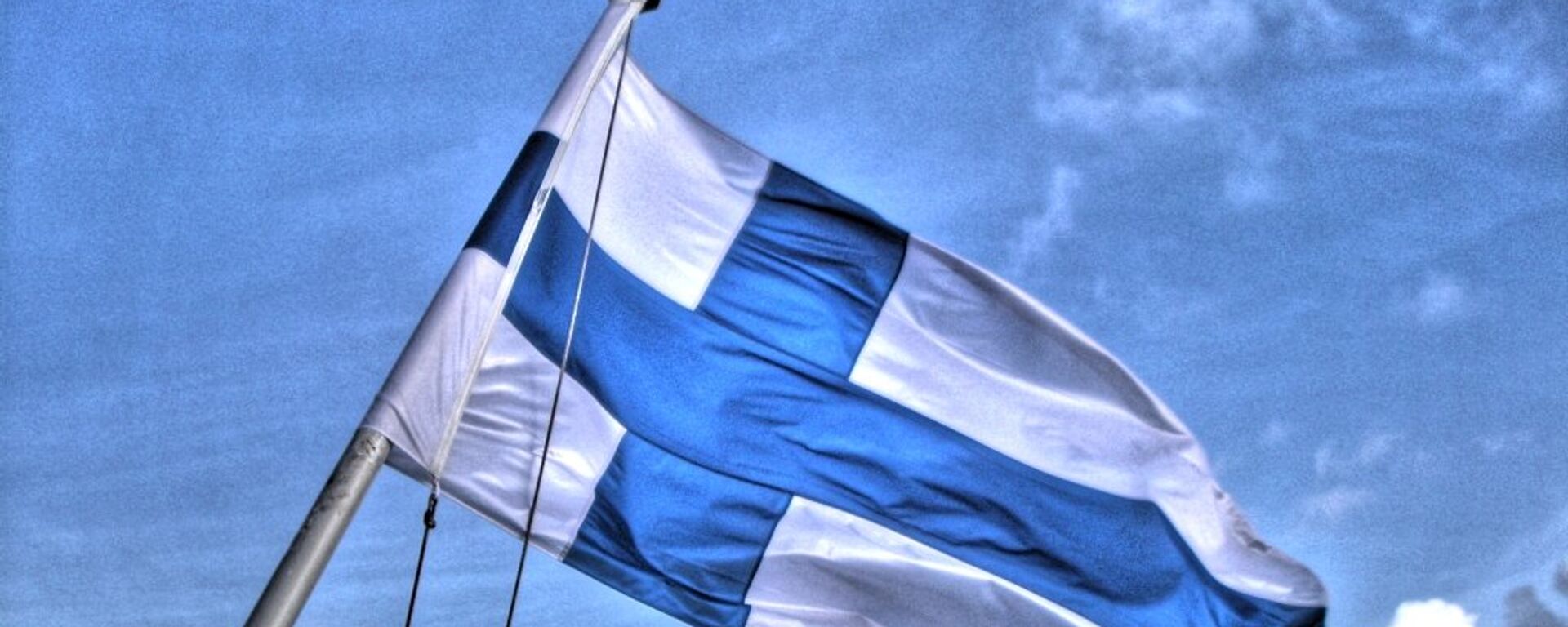https://sputnikglobe.com/20230427/putin-prepares-hard-hitting-response-if-russian-assets-seized-abroad-1109877210.html
Putin Prepares 'Hard-Hitting' Response if Russian Assets Seized Abroad
Putin Prepares 'Hard-Hitting' Response if Russian Assets Seized Abroad
Sputnik International
President Vladimir Putin's Decree on response measures if Russian assets are seized abroad is a hard-hitting reply to 'minimize risks'.
2023-04-27T15:02+0000
2023-04-27T15:02+0000
2023-04-27T15:02+0000
russia
vladimir putin
assets
foreign assets
frozen assets
russian economy under sanctions
gazprom
rosneft
https://cdn1.img.sputnikglobe.com/img/07e7/03/15/1108656987_0:0:3179:1788_1920x0_80_0_0_68dc37089b6a546fad6a3959d6bf015f.jpg
The assets of foreign companies cited in the decree signed on Tuesday by Russian President Vladimir Putin on response measures to Russian assets if they are illegally seized abroad are directly connected to the country’s energy sector, Nikolai Solabuto, a financial market expert, told Sputnik. This is not, in effect, a reciprocal response to the seizing or freezing of Russia’s assets abroad. According to the decree, 83.73% of Unipro's assets, 69.8807% of Fortum's assets owned by Fortum Russia, and 28.3488% of the company's assets owned by Fortum Holding were transferred to temporary management of Russia’s Federal Agency for State Property Management (Rosimushchestvo). The confiscation of Russian property abroad has long been a topic of discussion in the so-called collective West, with the government of the Russian Federation now coming up with its own response. Minimizing Russia's RisksThe market expert offered a very simple and clear-cut example of how this decree would work.Putin's decree basically says that Russia will maintain control over all vital areas to the country in terms of energy in the case of foreign companies registered in the jurisdiction of states that are unfriendly to Russia, Nikolai Solabuto underscored. By and large, one can talk about a kind of "mirror response" from Russia to the actions of the German government to transfer control of energy assets owned by Gazprom last year, Solabuto believed. The government of Chancellor Olaf Scholz has taken control of a local arm of Russia's natural gas producer Gazprom PJSC - Gazprom Germania (GG). The latter was a subsidiary of Gazprom Export (itself a part of Gazprom), and was engaged in trading natural gas throughout Europe. On March 31, 2022, the Gazprom Group ceased participation in Germany's Gazprom Germania GmbH and all its assets, including Gazprom Marketing & Trading Ltd. Germany's Economy Minister Robert Habeck announced in April 2022 that Gazprom Germania GmbH was being put under the trusteeship of the Federal Network Agency. The company was later nationalized. Germany also seized refining assets part-owned by the West-sanctioned state oil company Rosneft PJSC.Still, there is a difference in these cases, the financial market expert said.This decree is not entirely a reciprocal response to Berlin's actions regarding assets of Gazprom in Germany, Solabuto said, adding that Moscow currently needs to have a clear understanding of the position adopted by companies whose jurisdiction is outside Russia and, moreover, located in "unfriendly" countries.The transfer of foreign assets to temporary management is it aimed at minimizing risks for Russia itself, first of all, Nikolai Solabuto is convinced.The expansion of the number of companies under this decree depends on the companies themselves, according to the expert. If companies declare that they will continue to fulfill their obligations in full, then they will not be included in any lists under this decree.Russia will only consider a symmetrical response with respect to those companies that actually make unfriendly decisions against it, Solabuto said. Looking ahead at other possible companies that might find themselves on Russia's list, in line with the new decree, he pointed out:As for the measures that Russia might use in response to illegal US actions and those of other countries aimed at the "deprivation or restriction of property rights of the Russian Federation, its companies and citizens," the expert said Moscow would never "shoot itself in the foot," in the manner of the West's self-harming sanctions. For example, the US cutting off Russia’s Central Bank from US dollar transactions last year resulted in a general move away from the use of the American currency and a push towards de-dollarization.'Only the First Step'Around the world, about half of Russia's gold and foreign exchange reserves have been blocked by the so-called collective West, as have the property and accounts of Russian politicians, businessmen, and media workers. According to Mikhail Khazin, this leaves Russia with two options. The first is to "fight for our rights" by wielding reciprocal policies, the Russian economist and researcher told Sputnik.The decree, signed on April 25 by President Vladimir Putin, comes in response to the countries of the collective West in effect excluding Russia and its citizens from the legal field. Accordingly, Russia's countermeasures in relation to the West need to be painful enough to make them realize that they are committing acts that are unacceptable.There are a great many diverse instruments Moscow might use, and judging by the way the West is currently behaving, "it will happen," Mikhail Khazin concluded.
https://sputnikglobe.com/20230426/putin-signs-decree-on-response-measures-if-russian-assets-abroad-seized-1109835192.html
https://sputnikglobe.com/20220404/gazprom-germania-gmbh-temporarily-placed-under-trusteeship-of-federal-network-agency-1094473628.html
https://sputnikglobe.com/20230426/russia-to-take-measures-if-finland-fails-to-resolve-issue-with-russian-property-1109838958.html
russia
Sputnik International
feedback@sputniknews.com
+74956456601
MIA „Rossiya Segodnya“
2023
News
en_EN
Sputnik International
feedback@sputniknews.com
+74956456601
MIA „Rossiya Segodnya“
Sputnik International
feedback@sputniknews.com
+74956456601
MIA „Rossiya Segodnya“
hard-hitting response to minimize risks, russia;s assets, decree on eesponse measures if russian assets abroad seized, gazprom, rosneft, russia sanctions, self-harming sanctions, external control, asset freeze, jurisdictions of unfriendly states
hard-hitting response to minimize risks, russia;s assets, decree on eesponse measures if russian assets abroad seized, gazprom, rosneft, russia sanctions, self-harming sanctions, external control, asset freeze, jurisdictions of unfriendly states
Putin Prepares 'Hard-Hitting' Response if Russian Assets Seized Abroad
The decree signed by President Vladimir Putin on transfer of foreign assets to temporary management by Russia’s Federal Agency for State Property Management if Moscow's own assets abroad are seized is about minimizing the country's risks, Nikolai Solabuto, a financial market expert, told Sputnik.
The assets of foreign companies cited in the
decree signed on Tuesday by Russian President Vladimir Putin on response measures to Russian assets if they are illegally seized abroad are directly connected to the country’s energy sector,
Nikolai Solabuto, a financial market expert, told Sputnik. This is not, in effect, a reciprocal response to the seizing or freezing of Russia’s assets abroad.
According to the decree, 83.73% of Unipro's assets, 69.8807% of Fortum's assets owned by Fortum Russia, and 28.3488% of the company's assets owned by Fortum Holding were transferred to temporary management of Russia’s Federal Agency for State Property Management (Rosimushchestvo). The confiscation of Russian property abroad has long been a topic of discussion in the so-called collective West, with the government of the Russian Federation now coming up with its own response.
Minimizing Russia's Risks
The market expert offered a very simple and clear-cut example of how this decree would work.
“Imagine there is a pipe, and there are valves on the pipe. This valve belongs to a foreign company, registered in the jurisdiction of an unfriendly state… The valve is working, but the management of this company is pondering whether to continue operating on the territory of the Russian Federation, or leave. To rule out subsequent emergency situations linked with the closure of this valve, the government decreed that this particular department comes under our jurisdiction. At the same time, the ownership of this valve is retained by the foreign company in question.”
Putin's decree basically says that Russia will maintain control over all vital areas to the country in terms of energy in the case of foreign companies registered in the jurisdiction of states that are unfriendly to Russia, Nikolai Solabuto underscored.
"We will introduce external control. This is not an asset freeze," he stressed.
By and large, one can talk about a kind of "mirror response" from Russia to the actions of the German government to transfer control of energy assets owned by Gazprom last year, Solabuto believed.
The government of Chancellor Olaf Scholz has taken control of a local arm of Russia's natural gas producer Gazprom PJSC - Gazprom Germania (GG). The latter was a subsidiary of Gazprom Export (itself a part of Gazprom), and was engaged in trading natural gas throughout Europe. On March 31, 2022, the Gazprom Group ceased participation in Germany's Gazprom Germania GmbH and all its assets, including Gazprom Marketing & Trading Ltd. Germany's Economy Minister Robert Habeck announced in April 2022 that Gazprom Germania GmbH was being put under the trusteeship of the Federal Network Agency. The company was later nationalized. Germany also seized refining assets part-owned by the West-sanctioned state oil company Rosneft PJSC.
Still, there is a difference in these cases, the financial market expert said.
"Gazprom performed all its functions and declared in every possible way that it was fulfilling its obligations. Meanwhile, companies from foreign registries operating on the territory of the Russian Federation do not really show any vital activity. They are confused... And when questions are asked of their management, 'Will they continue their activities as usual?' They say: 'We don't know, we are currently consulting with our leadership, with the government of our country where we are registered.'"
This decree is not entirely a reciprocal response to Berlin's actions regarding assets of Gazprom in Germany, Solabuto said, adding that Moscow currently needs to have a clear understanding of the position adopted by companies whose jurisdiction is outside Russia and, moreover, located in "unfriendly" countries.
The transfer of foreign assets to temporary management is it aimed at minimizing risks for Russia itself, first of all, Nikolai Solabuto is convinced.
"The energy complex must work, and should not be subjected to any threats just because someone out there decided something, and these decisions are outside our jurisdiction, in the jurisdiction of states unfriendly to us."
The expansion of the number of companies under this decree depends on the companies themselves, according to the expert. If companies declare that they will continue to fulfill their obligations in full, then they will not be included in any lists under this decree.
Russia will only consider a symmetrical response with respect to those companies that actually make
unfriendly decisions against it, Solabuto said. Looking ahead at other possible companies that might find themselves on Russia's list, in line with the new decree, he pointed out:
"We work precisely with the enemies of our Russian Federation, and not with the whole world. We underscore that we will work with everyone. But if companies with foreign jurisdiction do not want to work with us, we will terminate our ties with them."
As for the measures that Russia might use in response to illegal US actions and those of other countries aimed at the "
deprivation or restriction of property rights of the Russian Federation, its companies and citizens," the expert said Moscow would never "shoot itself in the foot," in the manner of the West's
self-harming sanctions. For example, the US cutting off Russia’s Central Bank from US dollar transactions last year resulted in a general move away from the use of the American currency and a
push towards de-dollarization.
Around the world, about half of Russia's gold and foreign exchange reserves have been blocked by the so-called collective West, as have the property and accounts of Russian politicians, businessmen, and media workers. According to Mikhail Khazin, this leaves Russia with two options. The first is to "fight for our rights" by wielding reciprocal policies, the Russian economist and researcher told Sputnik.
The decree, signed on April 25 by President Vladimir Putin, comes in response to the countries of the collective West in effect excluding Russia and its citizens from the legal field. Accordingly, Russia's countermeasures in relation to the West need to be painful enough to make them realize that they are committing acts that are unacceptable.
"Regarding economic instruments at Russia's disposal, these are, first of all, ruble pricing, the creation of a regional system of division of labor and, accordingly, severe restrictions in relation to the Western world," Khazin said.
There are a great many diverse instruments Moscow might use, and judging by the way the West is currently behaving, "it will happen," Mikhail Khazin concluded.




